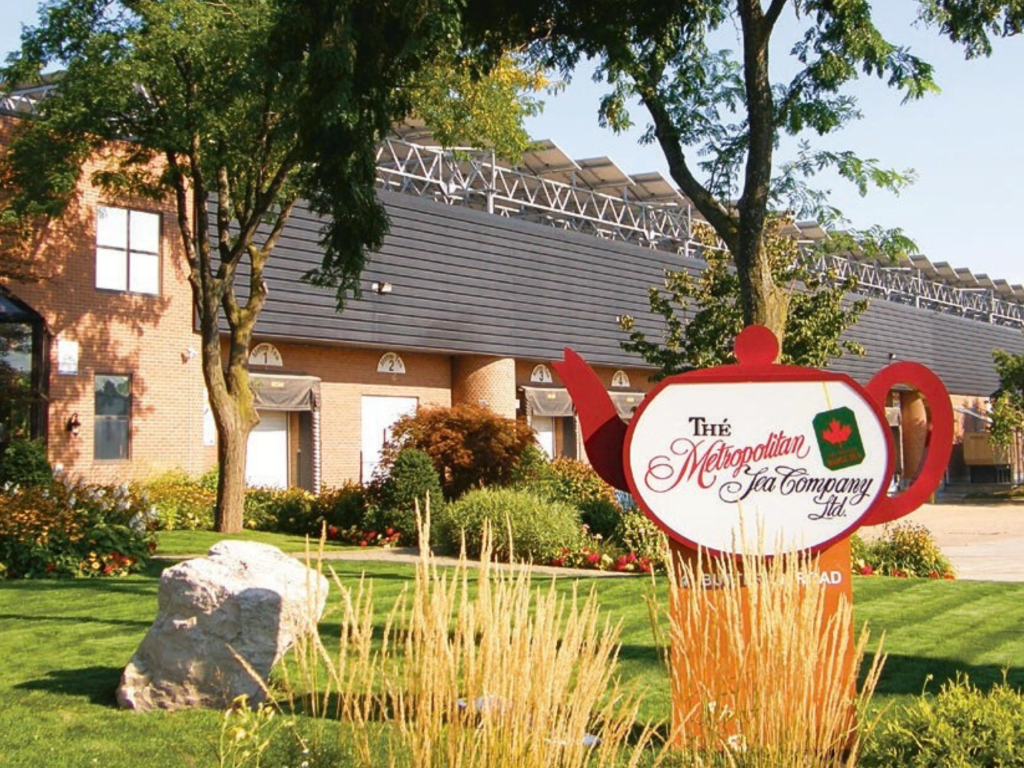Published July 26, 2024 • 6 Min Read
Pete Tsementzis credits his father for his long-term vision for their family farm that continues to sustain generation after generation.
His parent’s story is a familiar one. They arrived empty handed in Canada in the 1960s after leaving their mountain village in Greece in search of new opportunities. And they found them.
After arriving in the Niagara region of Ontario, Pete’s father and uncle bought their first poultry farm in 1967. After several years, the brothers decided to make a change – one that would impact the future of their farms.
“Looking back, it took some unbelievable wisdom by my dad and uncle to split the original farm into two,” says Pete. “There was nothing hostile about it, my uncle and cousin farm down the road from us. It was just a business decision as the two families grew and was the best thing for growth and to preserve good family relations.”
His dad’s foresight set the pieces in place for Pete and his family to expand the family operation, always with an eye to long-term sustainability and opportunities for the next generation.
Reducing the footprint
After completing university, Pete came home to farm with his dad, and purchased his first farm in 1994. A few years later, they first sat down to begin talking about formalizing their growing business – which now includes four satellite farms and the home farm – and ultimately building the framework for Pete to take over the business.
For the farm’s corporate structure, Pete credits the local tax lawyer and accountant as the true architects of the plan that set the framework for his parents to pass the farm to him. And the bones of that plan will be the basis for the next transition – whenever it happens – to him and his wife’s children.
“Succession planning is ingrained in our family business and 100% part of our business plan,” says Pete. “And sustainability is front and centre to any discussion we have about renovations or expansion.”
Pete and his wife Kim farm together with their daughter Ana and a full-time hired hand. Their son Chris works off the farm but keeps his hand in on weekends. They produce heavy roasters and table eggs centred around C&A Tsementzis Farms Inc., their home farm in Fulton, ON.
“Whenever there are any new opportunities on the farm – expanding or adding – the environment, animal welfare and sustainable practices are always top of mind,” says Pete.
With an eye to continually reducing their environmental footprint, Pete and his family look at ways to reduce water usage, reduce feed conversion ratios, reduce the gases coming out of barn fans and reduce the hydrocarbons used in heating.
Taking the time to get it right
The Gouw farm business shares some similarities to the Tsementzis family when it comes to transitioning operations and leaving legacies for the next generation.
It was 1987 when Casey Gouw Sr established Gouw Quality Onions after working for a few other farmers in southern Alberta. His sons Casey Jr and Kyle worked with him from the start, building the business based in Taber, AB that now spans more than 11,000 acres, anchored by field onions that are packaged and shipped from the farm to grocery stores across Western Canada. The family operation also includes sugar beets, a cow/calf operation, feedlot and cereal crops.
The first generational transition from Casey Sr to his two sons was finalized in 2005. And now, the Gouw brothers are starting the discussion and decisions that will see the business ultimately shift to their sons who have been learning all aspects of the business from the ground up.
“The first step in their succession plan, when Casey Jr and Kyle took over from their dad was pretty straight forward,” says company controller and business manager Brendan Odland. “The next one requires more work as the business has grown considerably and is more complex with a lot of moving parts.”
Brendan joined the Gouw family business about 10 years ago and wears a lot of hats. A certified professional accountant, his role continues to evolve as the business grows, including a focus on staff retention for the company’s workforce that swells to more than 90 people during the peak growing season.
He’s also helping manage plans for transitioning the business to the next generation.
Casey Jr and Kyle have a plan for the gradual transition of the farm to their sons over the next five to 10 years. It’s a process that Brendan knows takes patience and is easily sidetracked by day-to-day operational issues.
The transition plan also includes environmental decisions that contribute to the long-term sustainability of the farming operation. For the Gouws, that plan includes looking at new technology to reduce chemical use in their high-value onion crop. It’s a way to reduce input costs and their environmental impact.
“Casey Jr and Kyle have just purchased a laser weeder for the onion business after consulting with other growers in the US that have been using it,” says Brendan. “They are pretty excited about getting it to work in their fields.”
The GPS-driven weeder scans fields in real-time to target and eliminate weeds with a laser beam as it passes over the field. “We aren’t restricted by wind conditions and the laser weeder opens up future opportunities for organic production and custom work,” says Brendan.
Start yesterday. Stay on it.
Pete and Brendan share the sense of urgency and importance that comes with making plans for shifting farm ownership, based on their experiences.
“People don’t want to talk about succession because they see it as the end of something – but it’s not,” says Brendan. “Get on it early and take time to look at all options. Every family is different, and every plan is different.”
Pete wouldn’t have wanted to wait any longer than he did to start succession plans with his dad. “It was almost a 10-year process from working with advisors and building in time for changes as the business evolved,” says Pete.
There was an unforeseen “benefit” to Pete and his family for getting all their plans in place. “When dad passed away recently, we could just remember him and not worry about what might happen with the farm operation and ownership,” says Pete. “Investing in a plan was worth every penny for our peace of mind.”
This article is intended as general information only and is not to be relied upon as constituting legal, financial or other professional advice. A professional advisor should be consulted regarding your specific situation. Information presented is believed to be factual and up-to-date but we do not guarantee its accuracy and it should not be regarded as a complete analysis of the subjects discussed. All expressions of opinion reflect the judgment of the authors as of the date of publication and are subject to change. No endorsement of any third parties or their advice, opinions, information, products or services is expressly given or implied by Royal Bank of Canada or any of its affiliates.
Share This Article






